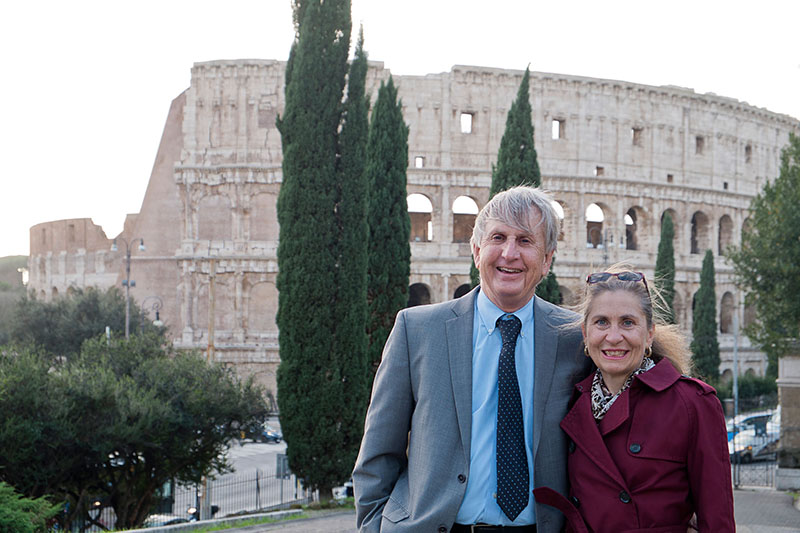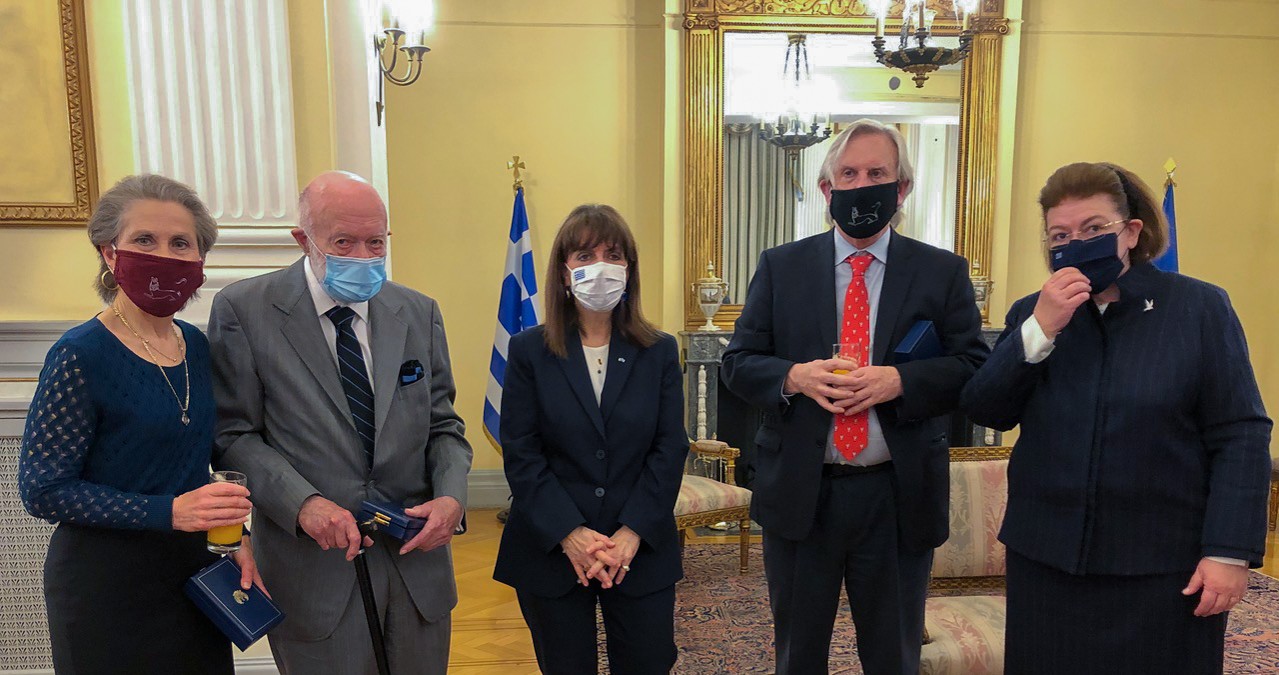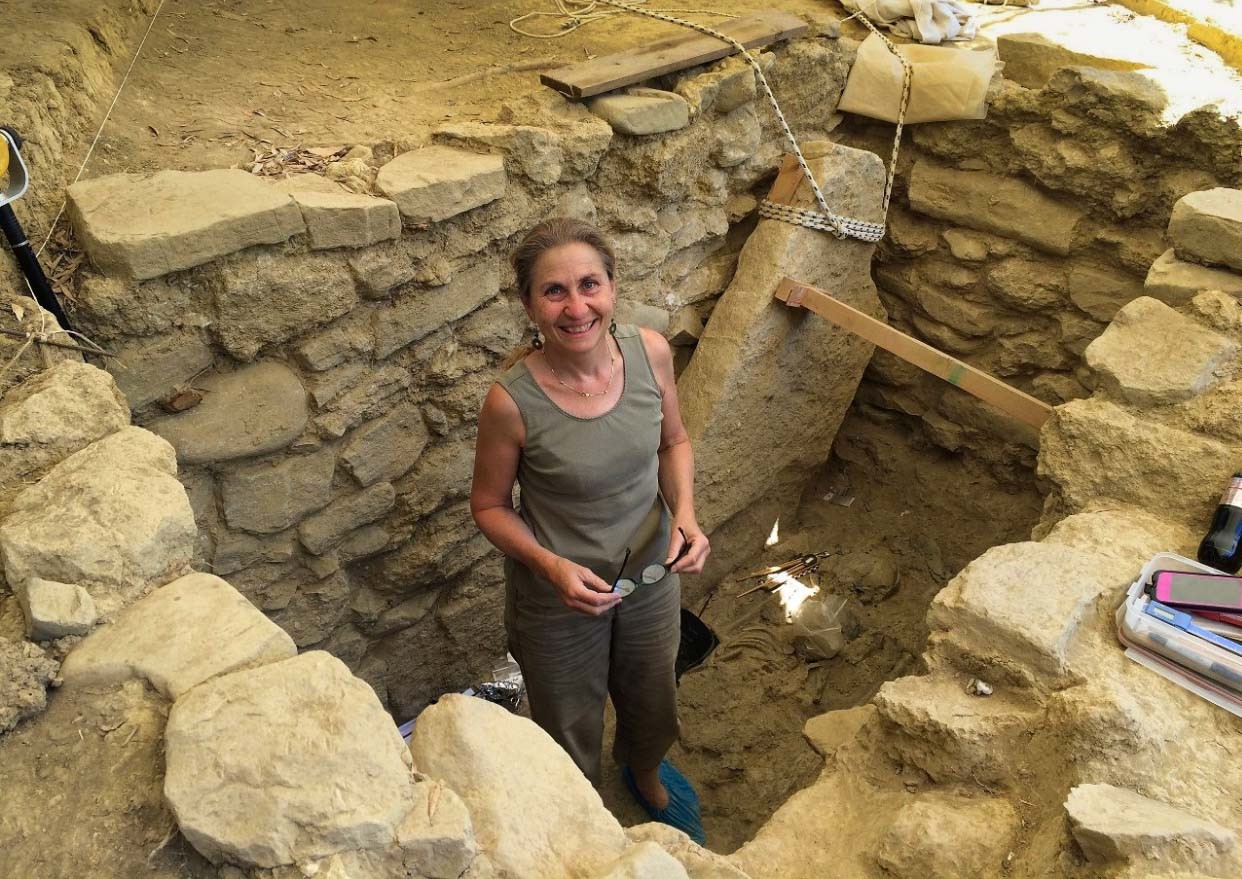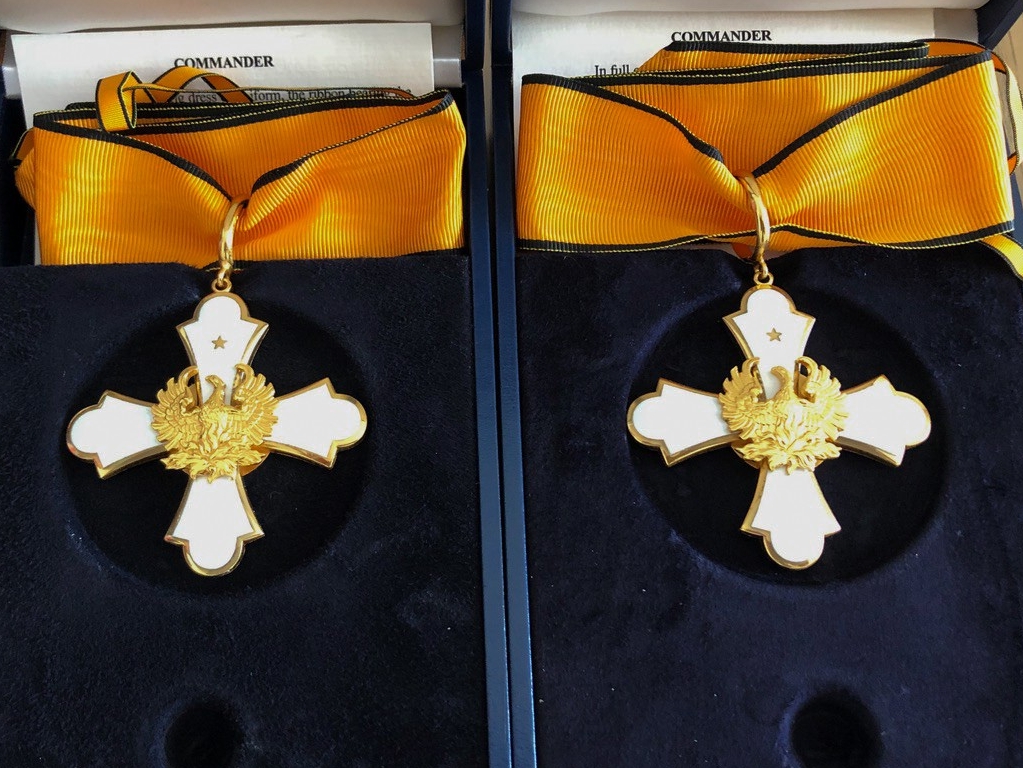
Greece honors two UC Classics researchers with ‘Order of Phoenix’
The honor is reserved for those who contribute to Greece’s international standing
The president of Greece honored two University of Cincinnati Classics researchers on Monday by bestowing upon them one of the country’s most prestigious awards, Commander of the Order of the Phoenix.
UC Classics Department Head Jack Davis and senior research associate Sharon Stocker made several groundbreaking archaeological discoveries in Pylos that are shaping our understanding of ancient Greece.
“Greece is my second home, a nation with a people that I love and respect dearly. I am pleased to have been able to serve Greece in such a way that its government deems me worthy of such a high recognition,” Davis said.
The award was established in 1926 to recognize Greeks who distinguish themselves in fields such as science, the arts or industry or to foreigners who contribute to enhancing Greece’s international stature in those fields. The award is named for the mythical bird that rises from the ashes as a symbol of rebirth.
“The recognition bestowed by the Greek government to Professor Jack Davis and Sharon Stocker highlights the value that our researchers in Classics bring to the University of Cincinnati," said Valerio Ferme, dean of UC's College of Arts and Sciences.
“Their world-renowned discoveries in Pylos confirm the significance that committing to humanistic goals has for the development of our educational enterprise: It innovates, it impacts well-beyond our region and it bridges cultural oceans to bring people together across time and spatial differences.”

UC Classics Senior Research Associate Sharon Stocker, left, and UC Classics Professor Jack Davis, second from right, stand with Greek President Katerina Sakellaropoulou, center. Also pictured are fellow honoree Charles Williams and Lena Mendoni, Greek Minister of Culture and Sports. Photo/Provided
In 2015, the UC researchers discovered the tomb of an ancient Greek leader. They called him the “Griffin Warrior” for the mythological Griffin — part eagle, part lion — adorning his ivory plaque. The tomb contained weapons and other artifacts, including a sealstone depicting mortal combat that featured such exquisite detail and beauty that Archaeology hailed it as a Bronze Age masterpiece.

A sealstone found in the tomb of the Griffin Warrior depicted ancient battle in such exquisite detail that it was hailed as a Bronze Age masterpiece.
The tomb was not far from the ancient Greek Palace of Nestor, a ruler mentioned in Homer’s famous works “The Iliad” and “The Odyssey.” The palace was discovered in 1939 by the late UC Classics professor Carl Blegen. Blegen had wanted to excavate in the 1950s in the field where Davis and Stocker found the new tombs but could not get permission from the property owner to expand his investigation. The tombs would have to wait 63 years for another UC team to make the startling discovery hidden beneath its grape arbors.
UC used photogrammetry and digital mapping to document the excavation, allowing researchers to see the site in three dimensions and in relation to other landmarks.
Archaeology named the Griffin Warrior one of the most important global discoveries of the past 50 years.
“It’s an honor to have my work at the Palace of Nestor recognized by the Greek government. It is a pleasure to work here and aid Greece in revealing the splendors of her past,” Stocker said.

UC Classics Senior Research Associate Sharon Stocker conducts archaeological work in Pylos, Greece.
Greek President Katerina Sakellaropoulou praised the UC researchers for employing their expertise to shine new light on ancient Greece.
“Under their joint direction of the excavation at Nestor's Palace in the region of ancient Pylos, the discovery of the Tomb of the Griffin Warrior was crucial for a fuller understanding of Greek prehistory, enriching our knowledge about the interactions of the Mycenaean civilization and the other civilizations of the Eastern Mediterranean in the Bronze Age,” Sakellaropoulou told the National Herald during the ceremony.
“The sum of the excavation work and archaeological research in the regions of Nemea, Kea and Messenia, as well as their knowledge of the prehistory of the Aegean islands, is an active contribution to Greek archaeology and contribute to the international promotion and presentation of Greek civilization worldwide,” she said.
In 2019, the researchers made an equally remarkable discovery of gold-lined family tombs. These princely tombs overlooking the Mediterranean Sea also contained cultural artifacts and jewelry that could help historians fill in gaps in our knowledge of early Greek civilization.

The president of Greece bestowed the Commander of the Order of the Phoenix medals to UC Classics professor Jack Davis and senior research associate Sharon Stocker. Photo/Provided
One gold ring depicted two bulls flanked by sheaves of grain, identified as barley by a paleobotanist who consulted on the project.
“It’s an interesting scene of animal husbandry — cattle mixed with grain production. It’s the foundation of agriculture,” Davis said. “As far as we know, it’s the only representation of grain in the art of Crete or Minoan civilization.”
These tombs likewise contained artwork emblazoned with mythological figures such as genii, lionlike creatures that stood upright and held serving vessels and an incense burner over an altar below a 16-pointed star.
The UC discoveries help paint a picture of accumulated wealth and status with treasures imported from around the world: amber from the Baltic, amethyst from Egypt, carnelian and gold, suggesting that Pylos was an important destination for commerce and trade.
In 2019, Davis received a gold medal for distinguished archaeological achievement from the Archaeological Institute of America. It’s the institute’s highest honor. He was the third UC professor to be recognized by the world’s oldest and largest archaeological association.
Featured image at top: UC Classics Professor and Department Head Jack Davis poses with UC Senior Research Associate Sharon Stocker, his wife and research partner, in front of the Colosseum. Photo/Provided

UC Classics Senior Research Associate Sharon Stocker, center, shares her work with the BBC. Her discoveries with UC Classics Professor Jack Davis have made international headlines. Photo/BBC
Impact Lives Here
The University of Cincinnati is leading public urban universities into a new era of innovation and impact. Our faculty, staff and students are saving lives, changing outcomes and bending the future in our city's direction. Next Lives Here.
Related Stories
UC grad takes liberal arts path to study medicine at Johns...
April 9, 2025
A career in healthcare has numerous different pathways and not each one is the same. Some students choose the traditional track, while others try a different approach to success. Jordan “Mint” Sewell can attest to this.
How color cosmetics merge form with function
April 9, 2025
The University of Cincinnati's Kelly Dobos was a featured expert in a Cosmetics & Toiletries article explaining trends and innovations in color cosmetics.
How long will you stay at that new job?
April 9, 2025
Daniel Peat, PhD, assistant professor in the Lindner College of Business at the University of Cincinnati, examines turnover behavior among new employees. He is a co-author on a new study published in the Journal of General Management.
